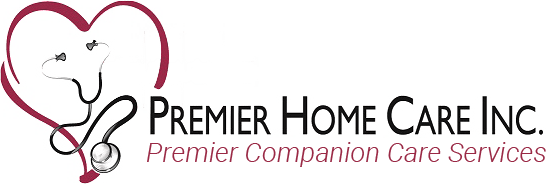Hospice and home health may seem similar at first glance, but they serve very different purposes. One focuses on comfort and dignity near the end of life, while the other supports recovery and independence through medical rehabilitation. So, which is best for your loved one?
At Premier Home Care, we’ve guided hundreds of families through these decisions with compassion and clarity. In this guide, we’ll explain the differences between home health and hospice care, how to qualify for each, and when it’s time to transition from one to the other. With our insights, you can make an informed decision about your family member’s care.
If your loved one needs extra support to remain at home, book your free consultation with Premier Home Care. We offer both skilled home health services and non-medical caregiving, and we’ll help you choose the right care for your family member at the right time.
What Is Home Health?
Home health is a form of rehabilitative medicine provided in your home. It typically follows a hospital stay, surgery, injury, or other medical event where ongoing care is needed to support recovery.
The goal is always restoration and rehabilitation, helping the patient return to the level of function they had before their hospital stay or injury.
The Core Services of Home Health
Home health can include a combination of the following services.
Nursing
Home health nurses monitor vital signs, manage medications, and provide wound care or post-surgical support. They coordinate care and communicate with the patient’s physician to ease the recovery process.
Physical Therapy
Physical therapists help patients regain strength, mobility, and balance after injury or illness. Treatment plans often include exercises to improve walking, reduce pain, and prevent future falls.
Occupational Therapy
Occupational therapists assist with daily living activities like dressing, bathing, and cooking. They also recommend home modifications or adaptive equipment to promote independence and safety.
Speech Therapy
Speech therapists address issues related to communication, cognition, and swallowing. They work with patients recovering from strokes, brain injuries, or degenerative conditions like Parkinson’s or dementia.
The Qualification & Goals of Home Health
To provide home health services, home health aides and clinicians must meet several qualifications:
- Must be licensed or certified, depending on their role (e.g., RN, PT, OT, ST)
- Must work under a physician’s order and follow a personalized care plan
- Must have training in medical care, safety, and patient communication
The goal of home health is to help patients recover safely at home, regain independence, and return to their prior level of function following illness, injury, or surgery.
What Is Hospice Care
Hospice care provides round-the-clock support for individuals who are nearing the end of life. It is centered around comfort rather than cure, aiming to improve quality of life for both the patient and their family. This type of care can be provided in the home or at a care facility, providing help with personal care tasks and emotional support during this challenging time.
The Core Focus of Hospice
The primary focus of hospice is to bring patients dignity, peace, and comfort in their final months. Instead of pursuing curative treatment, hospice prioritizes symptom control, emotional well-being, and compassionate support for both the patient and their loved ones.
Pain & Symptom Management
Hospice teams work closely with physicians to manage pain, shortness of breath, nausea, and other symptoms that affect comfort. Medications and care plans are adjusted regularly to meet the patient’s needs with minimal distress.
Emotional & Spiritual Support
Counselors and chaplains offer emotional and spiritual care based on the patient’s values and beliefs. This support extends to family members, helping them cope with grief, uncertainty, and end-of-life decisions.
The Eligibility Criteria for Hospice Care
To be eligible for hospice, a patient must have a terminal illness and opt to stop curative treatment in favor of comfort-focused care. A team of healthcare providers will assess the patient’s condition based on the following criteria:
- Diagnosed with a terminal illness
- Life expectancy of six months or less, as certified by a physician
- Decision to forgo curative treatments
- Declining functional or nutritional status
- Frequent hospitalizations or worsening symptoms despite treatment
Key Differences Between Hospice and Home Health
While both hospice and home health are provided in the home, they serve very different purposes and follow different care models:
Care Goals: Curative vs. Comfort
Home health focuses on curative treatment and rehabilitation, helping patients recover strength and function after illness or injury.
Hospice centers on comfort, dignity, and quality of life during the end-of-life stage.
Qualification Processes
To qualify for home health, a physician must certify that the patient needs skilled care and has the potential to improve.
For hospice, a patient must have a terminal illness and a life expectancy of six months or less, with no further curative treatments planned.
Referral Requirements
Home health services require a formal physician’s order and a care plan based on rehabilitative goals.
Hospice referrals also come from a physician but often involve input from doctors, nurses, and family members based on a shift to comfort-focused care.
Typical Care Team Composition
In home health, the team may include skilled nurses, physical therapists, occupational therapists, and speech therapists, depending on the patient’s needs.
In hospice, the care team typically consists of nurses, social workers, chaplains, bereavement counselors, and volunteers, all working to support the patient and family.
Treatment Approach
Home health follows a restorative approach, with measurable goals for recovery and progress.
Hospice takes a palliative approach, focusing on pain relief, emotional support, and maintaining quality of life rather than improvement.
Transitioning from Home Health to Hospice
Some patients may transition from home health to hospice care as their condition changes:
When to Consider Transition
A transition to hospice may be appropriate when:
- The patient is no longer making progress with rehabilitation
- There is a noticeable decline in health, function, or quality of life
At this point, the care focus may shift from recovery to comfort and symptom management.
Collaborative Decision-Making
The decision to move from home health to hospice involves input from:
- The patient and family
- Physicians and home health providers
- Hospice care professionals
This ensures that care aligns with the patient’s condition, values, and goals for quality of life.
How to Choose the Right Option for Your Loved One
Deciding between home health and hospice care depends on the nature of the illness, expected recovery, and personal care goals. Here’s how to make the best choice for your family member:
Assess Your Diagnosis & Expected Outcomes
Start by reviewing the diagnosis and whether improvement is medically expected. Generally:
- Choose home health if recovery or rehabilitation is likely
- Choose hospice if the illness is terminal and further medical treatment will not improve outcomes
Evaluating the likelihood of progress can help you choose the right care plan.
Discuss Prognosis & Care Goals with Your Healthcare Team
Speak with your doctor or care team to clarify:
- The expected progression of the illness
- Whether the focus should be on healing or comfort
These discussions define the appropriate level of care based on your loved one’s current and future needs.
Aligning Choice with Patient Comfort, Recovery Goals & Family Preferences
The decision should reflect the patient’s wishes, quality of life priorities, and the family’s ability to support care at home.
- Choose home health if the goal is to regain independence and return to daily routines
- Choose hospice if the focus is on comfort, symptom management, and emotional support during the final stage of life
Find the Right Care Option for Your Loved One with Premier Companion Care Services
When your loved one needs extra support to live on their terms, Premier Companion Care Services can help. Our team provides both medical and non-medical in-home care services, and we’ll help you make the best choice to keep your family member safe and comfortable.
Contact us today to speak with a care coordinator and find the right care solution for your family’s needs.

